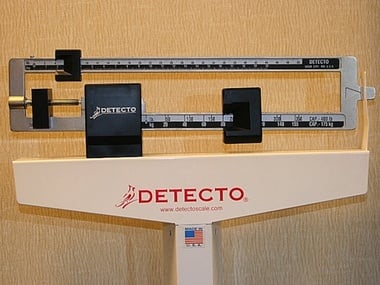Could you imagine going a full day without your iPhone or BlackBerry? What would it be like if you couldn’t check Facebook and see what your friends had been up to? Or if Twitter was temporarily out of action and your feed of 140 character messages were eliminated from your day? What if the newspaper didn’t arrive — and you had no Internet access? What a nightmare! How would we survive this hypothetical day of disconnection?
We regularly hear talk of the modern phenomenon, “Information Overload”, but have you noticed that we rarely hear anything about “Information Detox”? In other facets of our lives if we over-consume, the consensual thinking is to reduce, eliminate or detox. If you over-consume at a party on Saturday night, the first thing you’re likely to think of doing on Sunday is to clean out your body so that it can return to a state of improved energy and health.
A detox (or detox diet) aims to remove the toxins that have accumulated in your body and rejuvenate your health. After a detox, people claim to feel “light” and healthy again.
So…could we take this idea and carry it out with our information consumption?
Reasons to begin an Information Detox
To borrow one of my mother’s favourite sayings, “Everything in moderation”, too much of anything is not good. The same goes for information consumption. Too much of it is a bad thing. But how can information be negative?
It disturbs our focus. When we are always connected, it is much more difficult to keep our attention on the job that needs doing. We start to believe we are missing something. If we don’t log in to Twitter or Facebook, we may have missed something really interesting or relevant.
It can create stress. We are bombarded with information from all areas: newspapers, newsletters, news feeds. The danger is that we feel obliged to read all of this information. We believe that in some way our lives will be lacking if we don’t consume all the material that comes our way. This can create the subconscious anxiety that we always have something we need to do.
It fosters negativity. The media is full of negative news these days. Do we need to fill our days with these unpleasant thoughts and images? Wouldn’t it be a lot more pleasant to surround ourselves with positivity and inspiration?
We fail to be present. Look around you everywhere you go. Whether you are walking down a street in the United States or in New Zealand, the Netherlands or Abu Dhabi, wherever you look you will see the same picture. People absorbed by their mobile phones, engrossed in the “conversations” they are having. Talk or text — it doesn’t matter — they are detached from the reality around them. They are not living their lives in the present moment. If we allow this to continue, our personal relationships can suffer. The more we connect online the more we detach ourselves from our local community. Our jobs can suffer from the lack of focus and distraction. Our health can suffer from the stress and pressure to stay informed and connected. Ultimately, we may miss out on the beauty and possibilities of life.
Are you up for an Information Detox?
Here are some suggestions that you can try to get started. If you are feeing brave, try all of them for a week. If you want to try using baby steps, choose one each day this week and see how it changes your life for the better.
1. Switch off your phone when you get home from work.
2. Don’t use your phone on your way to and from work. Listen to music or read a novel.
3. Don’t access Facebook and Twitter for one week.
4. Don’t read any material that is not uplifting and motivational.
5. Turn off all email notifications or any other social media messages.
6. Do not watch the television for one week.
7. No newspapers, online news or any other form of world news access.
I would love to hear more suggestions and feedback. Let me know if you plan to try an Information Detox in the comments — and then come back and let me know how it turned out!













































